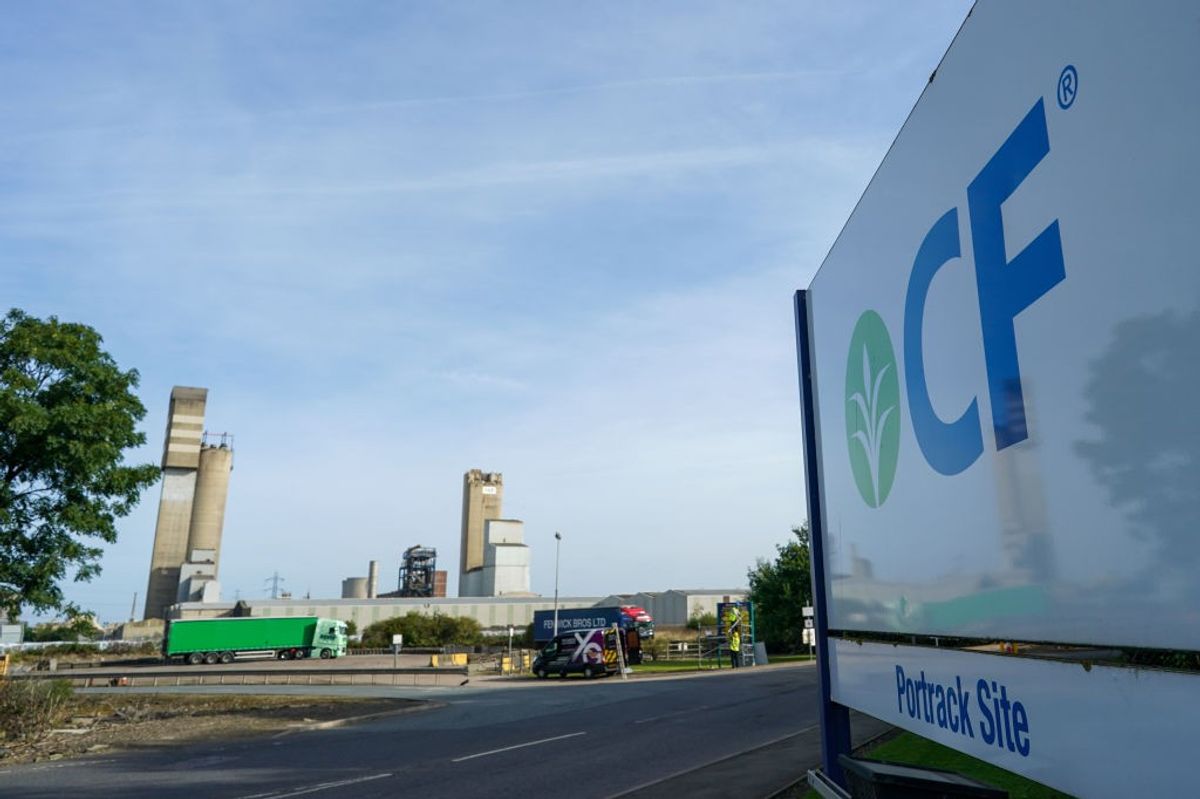Britain struck a deal with a major producer of fertiliser and carbon dioxide (CO2) on Tuesday to restart two plants which had halted operations due to soaring prices for natural gas.
The closures had led to fears that the production of a wide range of food and drinks could be shut down within days.
Why Is Carbon Dioxide Important?
The food and drink industry is the largest user of carbon dioxide with the gas used in a wide range of beverages including beer and soft drinks.
In the meat sector, it's also used to stun animals prior to slaughter while bakers often use it in a packaging process which prolongs the life of products such as crumpets and cakes.
The gas has many other applications outside of food and drink including in medicine where it is used during a wide range of procedures from non-invasive surgery to the removal of warts.
The energy sector is also an important consumer with the nuclear industry, for example, using it as a coolant.
How It Is Produced?
Carbon dioxide is a by-product in the production of some fertilisers and biofuels.
In Britain, the largest sources include CF Fertilisers UK's plant in Billingham in northeast England and the company's Ince plant in north-west England.
How It Is Traded?
Fertiliser producers sell carbon dioxide to industrial gas companies such as Linde and Air Liquide who purify it to the required standard before selling it to consumers.
Carbon dioxide is sold through a mixture of contracts and spot sales.
Why Is There A Shortage?
CF Fertilisers halted production at its two British fertiliser plants last week due to soaring prices of natural gas, a key input in the production process.
This effectively removed a large chunk of supply from the market and there have been reports that carbon dioxide suppliers were not scheduling beyond 24 hours in advance.
Many consumers only have sufficient reserves of the gas to last a few days and this created fears that production of a wide range of products could be quickly brought to a halt.

